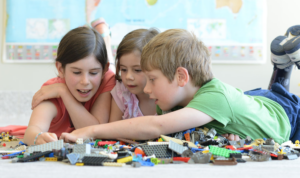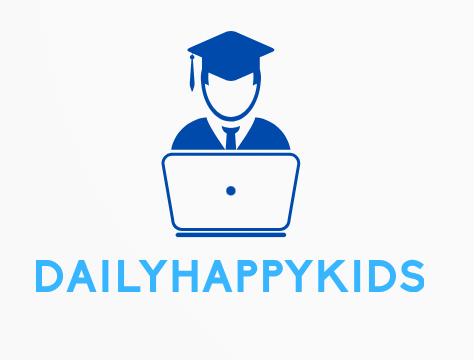Always keep in mind For a healthy Childhood, don’t keep the doctor away, though it’s kinda funny to hear that’s the mantra for your kids’ physical and mental health. Later half of this article we gonna discuss ‘child personality disorders’ so keep tuning 🙂. Online pokies in Australia are some of the best ways that you can get money for your child’s education. If you ever ask someone what health means to them, they will most probably say a healthy body and a healthier brain. Even google for that matter will tell you that health is a person’s mental and physical conditions – body and mind together make your health, they are not mutually exclusive. And this begins right from childhood. Children’s mental health not only determines what kind of people they will grow into but also how are they growing up – are they healthy? Are they happy? Are they okay?

How important is a kid’s mental health?
There cannot be enough emphasis made on how important a kid’s mental health is. Because mental health is not an issue that only ‘adults’ or older people deal with. Children’s mental health and all the lasting effects they have are dangerous, in every sense of the word. The incidents of childhood, the things they went through during that time or are going through, always leave a lasting imprint on the subconscious. Issues like anxiety disorder, ADHD, eating disorders, schizophrenia, and so many more can be found in more than around 10% of kids and children (5-16 years of age). The sad thing is there are enough or rather too few narratives which openly talk about. As a result, more than 70% of those with mental disorders don’t receive proper diagnosis or treatment.
So many of these children battle with life, with people around them, and with themselves – just because they are scared or they just don’t know if something or what is happening with them. And no one else understands or perceives that either. And before we go further, I would like to make it a point that nothing, absolutely nothing is wrong with these kids. That said, it doesn’t mean that they do not need any treatment or diagnosis or proper looking after. So to understand how we go about understanding these issues, let us first look at what are the actual causes for these.
What causes mental health issues in children?
There are no concrete or singular causes as to why these mental issues happen or occur in children to disturb the kid’s mental health. So, just like other physical health issues, these causes can be broadened to biological, environmental and physical factors. Biological factors could be genetic disorders, anomalies or complications. Absence or excess of even half or a single chromosome, imbalanced neurotransmitters, decreased or increased size of some part of the brain. Conditions like autism spectrum disorder, Attention Deficit Hyperactive Disorder (ADHD), bipolar disorders, and anxiety are the most common ones.
Then there are environmental and physical factors that affect a child’s growth mental growth or any other disorder he/she develops or is born with.
Pay heed to the emotional needs
Not much attention is given to the profound emotional impact on children caused by various factors leading to mental conditions. These factors become psychological risks, raising concerns about children’s mental health. For instance, deprived of attention and care, children may develop anxiety, depression, or low self-esteem. Those from unhappy family environments may struggle to confide in others or exhibit abusive behaviour. Moreover, if a parent has alcohol or drug issues, children are at risk of developing those addictions too.
Child Personality Disorders
These psychological and other factors also result in a child’s personality disorders. A child personality disorder is when a kid develops behaviour patterns that make them emotionally unstable, hard to get along with others, anxious and other similar issues. Even though it is most commonly found in adolescents and teens, some develop them in childhood itself. Like other health issues, it is impossible to narrow down why children suffer from personality disorders, but, continuous research has helped people understand these causes –
Genetic
More often than not, one’s genes play an imperative role in behaviours and personality. It is believed that a malfunctioning gene may cause obsessive-compulsive disorder – OCD.
Traumas
As previously mentioned, childhood experiences have a profound impact on a child. Studies indicate that sexually abused children may develop borderline personality disorders, leading to high emotional instability. Likewise, physically abused children may develop either low self-esteem or a narcissistic personality.
Sensitivity
If a child is highly sensitive to light and sound and texture, they develop phobias for life.
The list of causes is not comprehensive but, we could look into the different types of personality disorders that children have or the ones that take birth in or because of childhood.
Cluster A
Cluster A personality disorders are characterized by odd, eccentric thinking and/or behaviour. It includes paranoid personality disorder, schizotypal personality disorder and schizoid personality disorder. The most common signs of people of Cluster A are social awkwardness, distorted thinking and weird emotional responses.
Cluster B
People who deal with emotional, dramatic and erratic behaviour fall under Cluster B personality disorders. These include borderline personality disorder, antisocial personality disorder and narcissistic personality disorder. The common features are that they are impulsive, highly emotional (unstable) and have other emotional problems.
Cluster C
Cluster C includes disorders that deal with anxious, fearful thinking and/or behaviour. Obsessive-compulsive disorder, avoidant personality disorder and dependent personality disorder. Cluster C is drowned by their anxiety and over-thinking.
